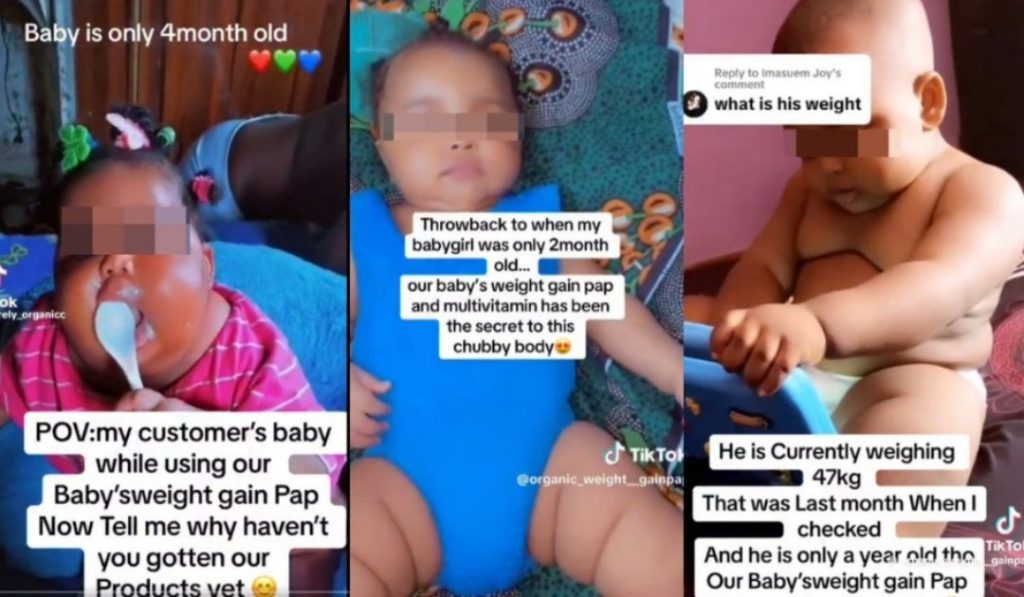A Nigerian TikTok user, known for her business selling “organic weight gain pap” for babies, has found herself at the center of a controversy regarding the safety of her product. Public concern was raised after various individuals, including the well-known health influencer Dr. Chinonso Egemba, colloquially referred to as Aproko Doctor, called for an investigation by the National Agency for Food and Drug Administration and Control (NAFDAC). The situation generated a discourse surrounding the regulation and safety of food products marketed for infants, leading to a need for transparency and accountability in the industry.
In an effort to address these public concerns, the seller took to her TikTok account, where she emphasized her disappointment that Aproko Doctor did not contact her directly before calling for an investigation into her product. She defended her offering, known as Pems Organic Weight Gain Pap, asserting that the ingredients used in her product are all natural and undergo a meticulous preparation process. She highlighted that her ingredients are sourced with care, cleaned, and dehydrated prior to production, aiming to alleviate doubts about the product’s safety and authenticity.
Detailing her recipe, the seller provided a list of ingredients that includes oats, sorghum, millet, tiger nuts, cashew nuts, soybeans, dried plantains, dates, crayfish, and groundnuts. Her insistence on the purity of her product is a crucial aspect of her defense, as she claims that she utilizes no artificial additives or preservatives. This position not only aims to reassure potential customers but also to counter the criticisms that have emerged from skeptics concerned about the impact of her food product on infants.
The seller further underscored that the product has been used without adverse reactions by her own children, as well as numerous others who have purchased it. As proof of the product’s safety, she offered to provide contact details of satisfied customers who could vouch for their positive experiences. Her assertion: “I do not kill or attempt to kill anyone’s child” reflects a strong emotional response to the allegations, highlighting her belief in the safety of her product. Furthermore, she emphasized that her goods are distributed both within Nigeria and internationally, and she has not received any reports of harmful reactions from children consuming her pap.
In her defense, the seller clarified the legitimacy of her business, revealing that it is registered with the Corporate Affairs Commission (CAC) and that she is actively pursuing NAFDAC approval. This pursuit is important, as NAFDAC’s endorsement is critical for food products marketed in Nigeria. She reassured the public that obtaining the necessary documentation is a work in progress and that she is more than willing to provide product samples for third-party analysis to ensure transparency and compliance with safety regulations.
The unfolding events encapsulate a broader dialogue about food safety, particularly concerning products marketed for infants and children. The seller’s insistence on the natural composition of her product, combined with her commitment to obtaining the required regulatory approvals, reflects an effort to balance entrepreneurial aspirations with the demands of public health and safety oversight. As the conversation continues, it underscores the importance of vigilance in food marketing, particularly in an age where social media can amplify concerns and influence consumer decisions dramatically. The outcome of this situation may set a precedent for how similar products are reviewed and accepted in the market moving forward.














